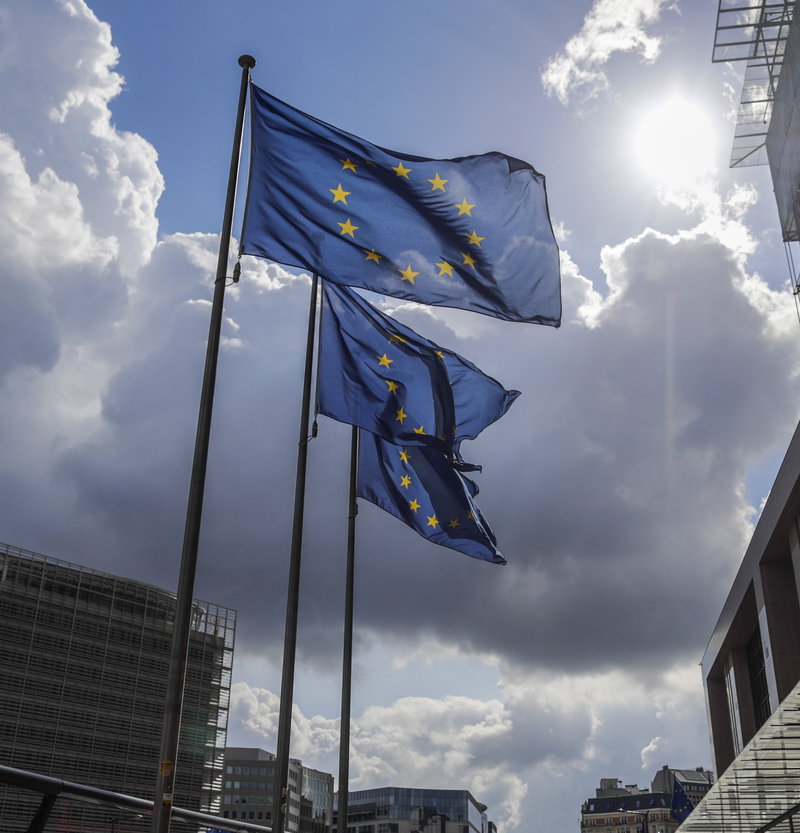ENERGY, INFLATION AND IMMIGRATION
Making predictions about politics is risky, but we can identify three elements that will affect all of Europe in 2023. Two of them are largely the result of the war between Russia and Ukraine: rising energy prices and inflation. Russia has limited the energy supply to Europe to exert pressure and this is likely to continue. This in turn causes energy prices to climb and they will remain high all year. Meanwhile, inflation ran rampant in 2022 and reached double digits. It is not expected to continue at this rate in 2023, but nor will it fall dramatically. High energy prices and inflation means governments will have to find ways to mitigate their effects, although there is no consensus on how to do that. Nor is there any when it comes to addressing the third element that will affect all of Europe: immigration. People will continue to come to Europe, especially from Africa, but also from Asia and Latin America, and the debate on how to deal with this will remain on the political agenda.
There will be no European Parliament elections in 2023, saving the EU from the vagaries of the ballot box after a scandal of corruption and illegitimate foreign interference that has helped to further discredit European institutions. No doubt during 2023 we will see grand statements and proposals to regulate the activity of MEPs and increase transparency, but it will do little to improve the EU’s image in the eyes of a large part of the population.
Turning to individual states, a highlight of the year in the UK will be the coronation of King Charles III. Yet the spectacular display of tradition will not cover up the tensions in the country, and a rise in social conflict is expected, with more strikes than last year. The new PM, Rishi Sunak, has abandoned his predecessor’s plan to cut public aid and benefits, but it remains to be seen if he can bring stability after five prime ministers in six years. In the north, the Scottish government will have to recover from the Supreme Court ruling that a new independence referendum will require approval by the UK parliament. First minister, Nicola Sturgeon, will be hoping Labour wins the next election and will need the SNP to govern, providing a chance to negotiate a second referendum.
Italy has just had elections, which resulted in a right-wing government headed by Georgia Meloni. She is likely to pursue a pragmatic policy in 2023 and any clashes with the EU will come over immigration. Another thing will be whether the stability of the government based on a coalition of three right-wing parties will last. In the past 30 years, the average duration of Italian governments has not exceeded 20 months.
French president Emmanuel Macron also won an election last year, albeit with less support than in 2017. A quiet year is expected in French politics, but moves will be made to see who will emerge as the candidate for Macron’s party in the next presidential elections.
In Germany, the coalition government between socialists, greens and liberals will continue and the sharp rise in military spending in response to the Russian invasion has not caused much tension between the governing parties. Yet we will have to keep an eye on far-right paramilitary groups, some of which have connections to the army.
On Europe’s outskirts, Turkey will be the protagonist in 2023. In June there will be presidential elections, with some uncertainty about the possible result. The conditions under which the vote is held will say a lot about the level of democracy in Turkey. In the run-up to the election, President Erdogan will likely harden his position in some of the conflicts he has open, such as the one with Greece (where there will also be elections, and therefore a chance for the conflict to escalate). There are also the talks with Sweden and Finland to become members of NATO. Turkey is blocking these because it says they are havens for Kurdish activists and politicians. Turkey also celebrates the centenary of the proclamation of the Republic of Turkey in October.
Finally, 2023 could be historic for Andorra, which will sign an association agreement with the EU, bringing it closer to the common market and the political standards of its neighbours.
INTERNATIONAL

